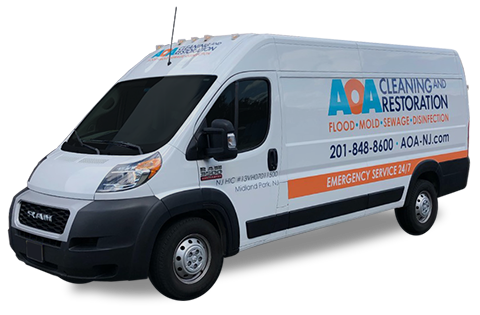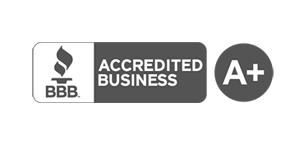Mold on the floor is not just an eyesore; it can also pose serious health risks. Certain types of mold, like black mold, release harmful chemicals into the air. This can cause respiratory issues and other health problems in your New Jersey home.
It’s important to address mold on floors to keep your New Jersey home safe and healthy. The good news is that you can remove mold and prevent it from coming back with the right approach.
This article will guide you through identifying and removing mold from your floors. It will also provide tips on how to prevent mold from growing back.
Key Takeaways
- Understand the health risks associated with mold on floors.
- Learn how to identify mold growth on different types of flooring.
- Discover effective DIY methods for removing mold.
- Find out how to prevent mold from returning.
- Get tips on maintaining a mold-free New Jersey home environment.
Understanding Floor Mold: Causes and Identification in NJ
Excess moisture can cause mold to grow on floors. Mold starts with moisture, like from leaks, steam, or high humidity. Knowing why mold grows and spotting its signs are key to fixing the problem.
Role of Moisture in Mold Growth in NJ
Moisture is key for mold to grow on floors. Different floors handle moisture differently. Hardwood floors can soak up moisture, perfect for mold. Tile floors can also get mold if water gets between the tiles.
To stop mold, fix moisture problems fast. Here are common moisture sources that lead to mold:
- Water leaks from plumbing or appliances
- Condensation from high humidity
- Steam from bathrooms or kitchens
- Floods or water damage
Spotting mold on floors involves looking and checking for signs. Common signs include:
- Visible mold, seen as black spots or patches
- A musty smell, which means mold is present
- Warped or discolored floors, showing water damage or moisture
Understanding moisture’s role in mold and knowing how to spot mold helps New Jersey homeowners act fast. Using mold removal techniques and prevention strategies keeps floors healthy and mold-free.
For more on mold removal and preventing it on floors, consider your flooring and moisture source. Taking preventive steps can greatly lower mold risk.
How to get rid of mold on New Jersey floors: Step-by-Step Guide
To get rid of mold on floors, you need a clear plan. Start with safety and preparation.
Safety Precautions
Protect yourself from harmful toxins before you start. Wear gloves, goggles, and a N-95 mask. Also, clear the area around the mold to stop it from spreading.
Next, make your cleaning solution. For most floors, mix water with bleach or a mold remover. But, the right mix depends on your floor type.
- Hardwood floors do well with water and white vinegar.
- Tile floors might need a bleach solution.
- Test a small area first to avoid damage.
Put the solution on the mold, making sure it covers it well. Let it sit for a few minutes. This helps the solution get deep into the mold.
Then, gently scrub the area with a soft brush or scrubber. Don’t use anything too rough that could harm your floor.
Rinse the area well with clean water. This removes mold and solution. Make sure to dry it completely to stop mold from coming back.
- Use fans to help air move.
- Open windows for better air flow.
- Run a dehumidifier to lower air moisture.
Drying the area well is key to stopping mold from coming back. Not drying it enough can lead to more mold.
Effective Products and Solutions for Floor Mold Removal in NJ
There are many ways to get rid of mold on floors. You can choose between chemical cleaners or natural options. This depends on how bad the mold is and what you prefer.
Chemical Cleaners for Mold Removal
Chemicals like bleach work well against mold. To make a bleach solution, mix one cup of bleach with a gallon of water. You can apply this directly to the moldy spots.
Remember to be safe when using chemicals. Wear gloves and make sure the area is well-ventilated.
Natural Cleaners for Mold Removal
If you prefer natural methods, white vinegar is a good choice. Just apply undiluted vinegar to the mold on hard surfaces, like in kitchens and bathrooms.
You can also try baking soda and tea tree oil. They can be mixed into homemade cleaning solutions.
Homemade Cleaning Solutions
Homemade solutions can also fight mold. For example, baking soda and water can help scrub away mold.
- Mix 1 tablespoon of baking soda with 1 cup of water to create a paste.
- Apply the paste to the moldy area and scrub.
- Rinse thoroughly with clean water.
Tea tree oil is another natural option. Mix a teaspoon of it with a cup of water and spray it on the mold.
Always test a small area first with any cleaning solution. This ensures it won’t harm your floor.
Conclusion: Preventing Future Mold Growth on Floors
To stop mold on floors, you need to tackle moisture at its source. Fixing leaks and improving air flow are key. Also, keeping humidity low is important.
Using a dehumidifier can lower your New Jersey home’s moisture. This makes it harder for mold to grow.
Keeping your floors mold-free means checking them often for moisture and mold. Make sure water drains well and use products that fight mold. Knowing how to remove mold quickly is also important.
By following these steps, you can lower the chance of mold on your floors. This makes your New Jersey home healthier and safer. Stopping mold is a continuous effort that needs careful attention and action.
Contact AOA Cleaning & Restoration today for all your water damage, mold, and sewage needs in the New Jersey area!






